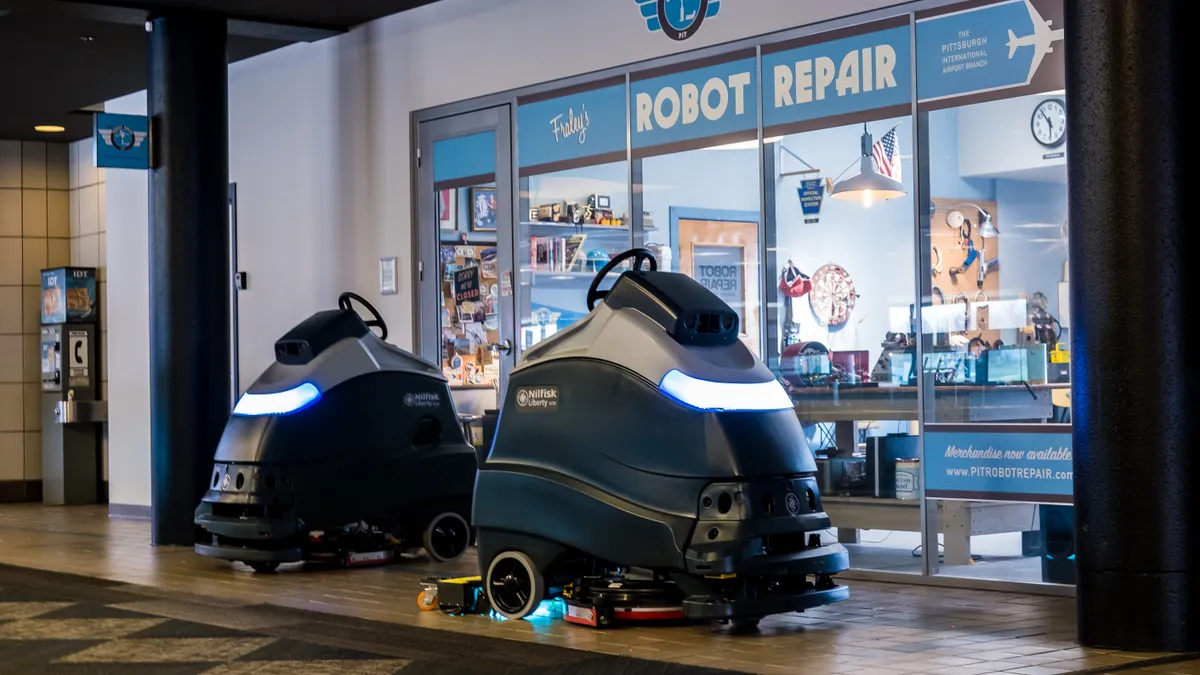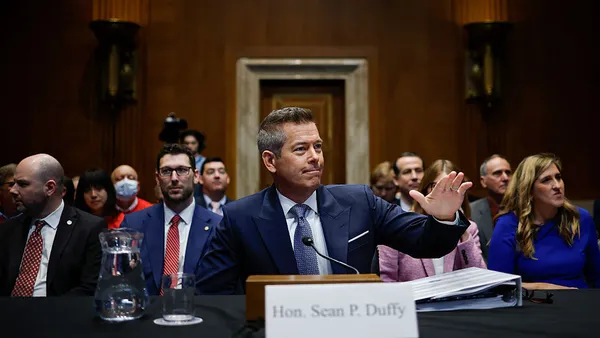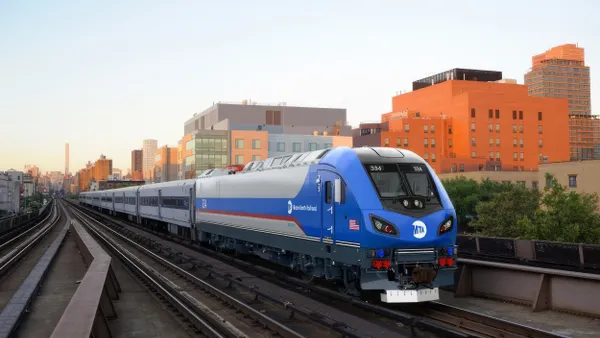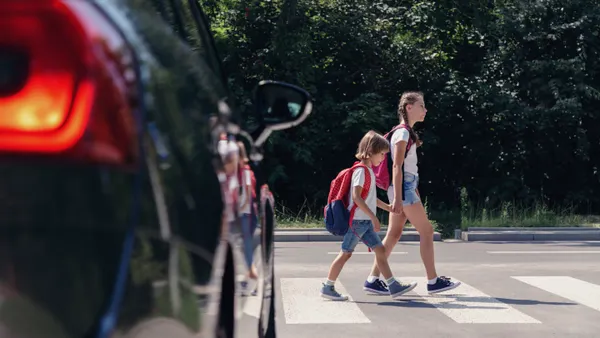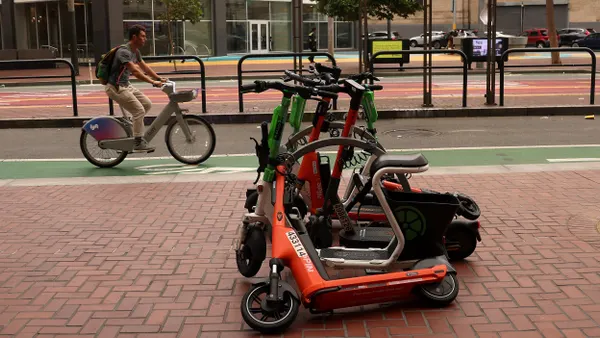Dive Brief:
- Pittsburgh International Airport (PIT) became the first U.S. airport to deploy autonomous robots that use ultraviolet (UV) light technology to sanitize surfaces and prevent the future spread of the new coronavirus (COVID-19).
- The robots first clean floors in highly trafficked areas of the airport with a scrubber, then a UV light sanitizes the surface. Airport officials said they will soon look to use UV disinfecting technology elsewhere, including on escalators, handrails, elevator buttons and other areas that are touched often.
- The robots, developed by local firm Carnegie Robotics, are currently tested in the airport terminals and may soon be deployed as part of daily cleaning routines.
Dive Insight:
Given the throughput of travelers each day from a variety of places, airports are regarded as a potential hub for infection amid the current pandemic — but there are some technology solutions trickling out that could alleviate that.
Just last month, Anaheim, CA-based iinside unveiled technology powered by LiDAR from Quanergy to monitor and analyze crowd density in high-trafficked buildings like airports. Meanwhile, airlines are ramping up their cleanliness strategies in a bid to show the traveling public their planes and other facilities are safe. Southwest Airlines and Delta are among those to release detailed information on how they will enhance safety, including in the areas they lease in airports.
UV light has been used for years as a disinfectant in hospitals and laboratories, and this announcement offers a tantalizing glimpse into the future of cleanliness in airports and other transportation hubs. New York's Metropolitan Transportation Authority (MTA) is also testing the use of UV light technology to sanitize subway cars through a partnership with Columbia University, the Verge reports.
PIT is gathering a strong reputation as a place of innovation in the aviation industry. In 2018, it announced a partnership with Carnegie Mellon University’s Metro21: Smart Cities Institute on new projects and innovations for the aviation industry.
If this technology is successful in slowing the spread of infection, it could encourage more people to resume their traveling plans, especially once airline operations are back to relative normalcy.
To keep up with all of our coverage on how the new coronavirus is impacting U.S. cities, visit our daily tracker.



